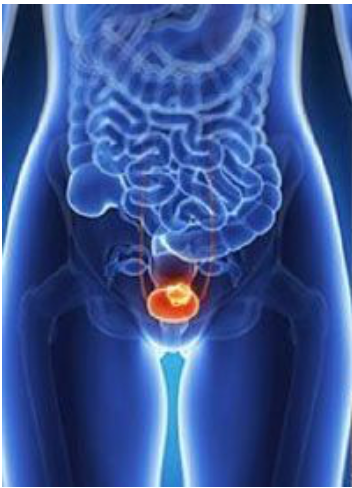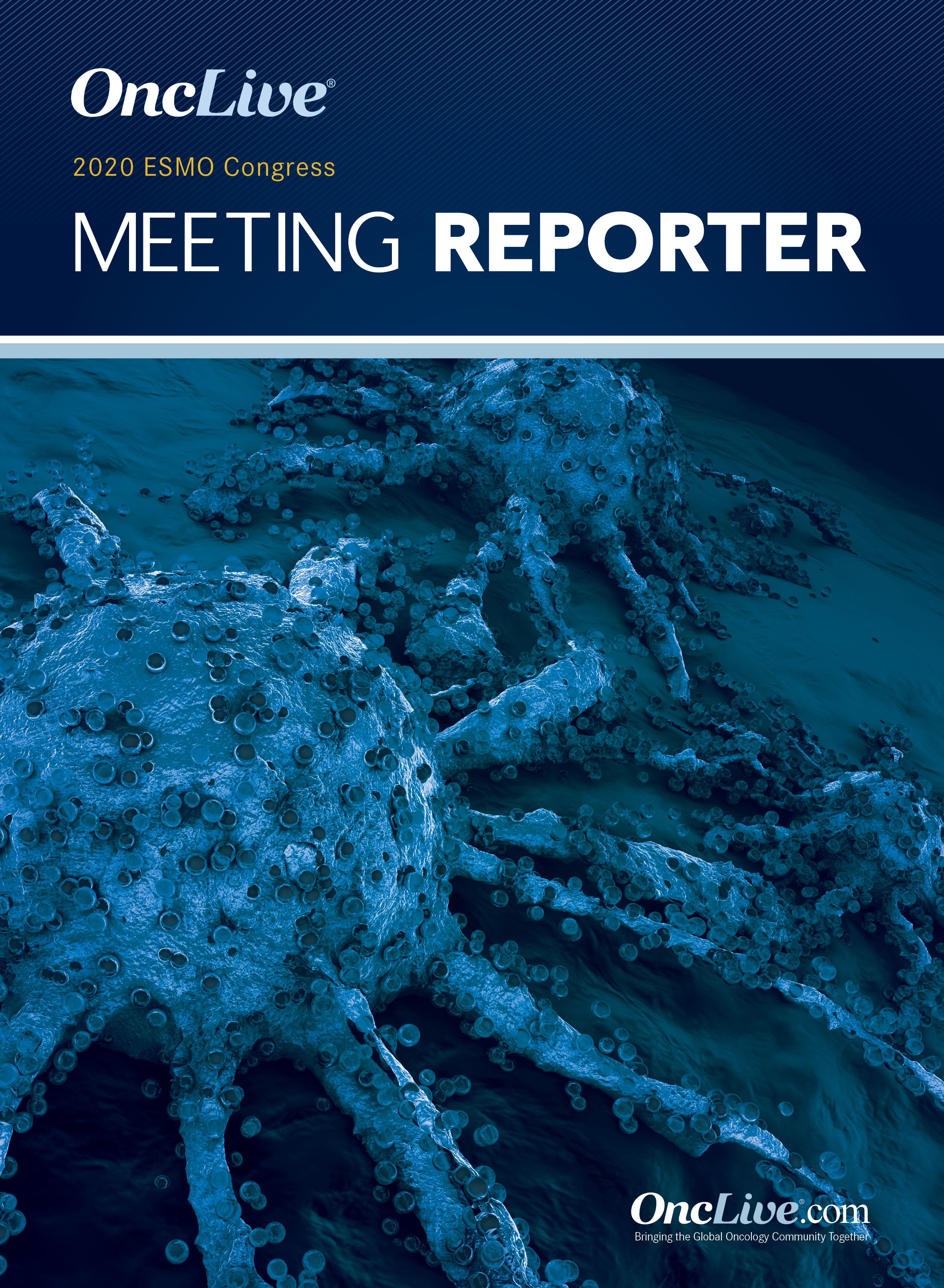Publication
Article
Supplements and Featured Publications
Enfortumab Vedotin Sustains OS Benefit in Locally Advanced or Metastatic Urothelial Cancer
Author(s):
Enfortumab vedotin-ejfv resulted in a significant improvement in overall survival versus chemotherapy in adult patients with locally advanced or metastatic urothelial cancer who received prior treatment with platinum-based chemotherapy and a PD-1/PD-L1 inhibitor.

Enfortumab vedotin-ejfv (Padcev) resulted in a significant improvement in overall survival (OS) versus chemotherapy in adult patients with locally advanced or metastatic urothelial cancer who received prior treatment with platinum-based chemotherapy and a PD-1/PD-L1 inhibitor, meeting the primary end point of the phase 3 EV-301 trial (NCT03474107).1
Results from the trial showed that patients who received enfortumab vedotin experienced a 30% reduction in the risk of death (HR, 0.70; 95% CI, 0.56-0.89; P =.001). The antibody-drug conjugate (ADC) was also found to lead to a significant improvement in progression-free survival over chemotherapy, which was a secondary end point of the trial. The ADC resulted in a 39% reduction in the risk of disease progression or death (HR, 0.61; 95% CI, 0.50-0.75; P <.00001).
“These survival results from the confirmatory trial for [enfortumab vedotin] are welcome news for patients whose cancer has progressed after platinum-based chemotherapy and immunotherapy,” Roger Dansey, MD, chief medical officer at Seattle Genetics, stated in a press release. “We continue to explore [the agent’s] activity across the spectrum of urothelial cancer including its potential use for earlier lines of therapy.”
In the phase 3 trial, patients in the experimental arm received enfortumab vedotin on days 1, 8, and 15 of each 28-day treatment cycle.2 Those in the control arm received either docetaxel, vinflunine, or paclitaxel as determined prior to randomization; in this arm they received the chemotherapy agent on day 1 of every 21-day cycle.
The primary end point of the trial was OS, while secondary end points included progression-free survival (PFS), overall response rate (ORR), disease control rate (DCR), duration of response (DOR), safety, and patient-reported outcomes as assessed by quality of life.
With regard to safety, the adverse effects reported with enfortumab vedotin proved to be consistent with those previously observed in the United States, according to Seattle Genetics, Inc, co-developer of the drug. Grade 3 or greater toxicities experienced by more than 5% of patients included rash, hyperglycemia, decreased neutrophil count, fatigue, anemia, and decreased appetite.
The global biotechnology company will submit the data from the confirmatory trial to the FDA, following the regulatory approval of enfortumab vedotin in 2019. The EV-301 trial will also be used to support global registrations.
“EV-301 is the first randomized trial to show OS results compared to chemotherapy in patients with locally advanced or metastatic urothelial cancer who previously have received platinum-based treatment and a PD-1 or PD-L1 inhibitor, and we are encouraged by the potential this may have in helping patients who have otherwise limited alternatives,” Andrew Krivoshik, MD, PhD, senior vice president and head of the Oncology Therapeutic Area at Astellas, added in the release. “We look forward to discussing these results with global health authorities.”
Enfortumab vedotin is indicated for use in adult patients with locally advanced or metastatic urothelial cancer who have received prior treatment with a platinum-containing chemotherapy or with a PD-1/PD-L1 inhibitor.
The regulatory decision was based on data from the first cohort of patients enrolled in the phase 2 EV-201 trial, which demonstrated that the ADC elicited an ORR of 44% in patients with locally advanced or metastatic disease; this was comprised of a complete response (CR) rate of 12% and a partial response (PR) rate of 32%.3
In the single-arm phase 2 trial, patients with locally advanced or metastatic urothelial cancer who received previous treatment with a PD-1/PD-L1 inhibitor and a platinum-containing chemotherapy comprised cohort 1; those who did not receive prior platinum-containing chemotherapy and who were cisplatin ineligible comprised cohort 2.
Cohort 1 enrolled a total of 128 patients at several centers internationally; those in this cohort received the ADC intravenously, at a dose of 1.25 mg/kg, on days 1, 8, and 15 of each 28-day treatment cycle.
Of the 125 patients who were treated with the agent, 70% were male. The median age of participants was 69 years. Patients had received a median of 3 previous lines of systemic therapy in the locally advanced or metastatic setting, but they did not receive treatment for 2 or more weeks prior to study enrollment. In 65% of patients, the combined positive score (CPS) of PD-L1 expression was less than 10, while 35% had a CPS score of 10 or greater.
The primary end point of the trial was confirmed ORR per blinded independent central review. Key secondary end points of EV-201 included DOR, DCR, PFS, and OS, as well as safety and tolerability.
The OS with the ADC was 11.7 months, while the PFS was 5.8 months. The median DOR with enfortumab vedotin was 7.6 months. Notably, responses with the agent were observed across all subgroups examined in the trial, regardless of response to previous immunotherapy or the presence of liver metastases (ORR, 38%; 95% CI, 24.7%-52.8%). The median time to response to the ADC was 1.8 months.
Previously, in March 2018, enfortumab vedotin was granted a breakthrough therapy designation by the FDA for use in patients with locally advanced or metastatic urothelial cancer whose disease progressed during or after treatment with checkpoint inhibitor therapy.
References
- Seattle Genetics and Astellas announce Padcev (enfortumab vedotin-ejfv) significantly improved overall survival in phase 3 trial in previously treated locally advanced or metastatic urothelial cancer. News release. Seattle Genetics, Inc and Astellas Pharma Inc. September 18, 2020. Accessed September 18, 2020. https://bwnews.pr/2FPkPgl.
- A study to evaluate enfortumab vedotin versus (vs) chemotherapy in subjects with previously treated locally advanced or metastatic urothelial cancer (EV-301). ClinicalTrials.gov. Updated July 27, 2020. Accessed September 18, 2020. https://clinicaltrials.gov/ct2/show/NCT03474107.
- Petrylak DP, Balar AV, O'Donnell PH, et al. EV-201: results of enfortumab vedotin monotherapy for locally advanced or metastatic urothelial cancer previously treated with platinum and immune checkpoint inhibitors. J Clin Oncol. 2019;37(suppl 18):LBA4505. doi:10.1200/JCO.2019.37.18_suppl.LBA4505










